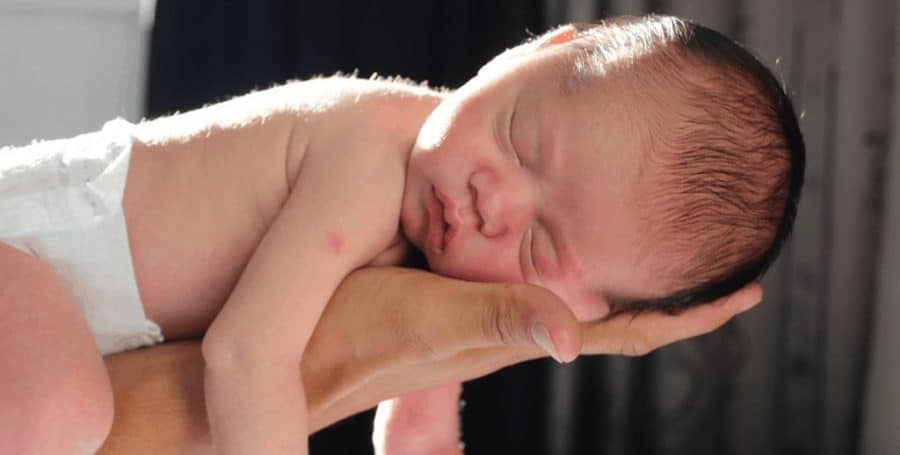Summary: New research from Columbia University shows that children born during the first year of the COVID-19 pandemic, including those exposed to the virus in utero, do not have a higher risk of screening positive for autism compared to pre-pandemic children.
Estimated reading time: 5 minutes
Children born during the early stages of the COVID-19 pandemic appear to have no increased risk of autism, according to a groundbreaking study from Columbia University Vagelos College of Physicians and Surgeons. The research, published in JAMA Network Open on September 23, 2024, provides the first insights into autism risk among pandemic-era children.
The study’s findings challenge initial concerns that the stress and infections associated with the pandemic might lead to higher rates of autism in children born during this period. Dr. Dani Dumitriu, associate professor of pediatrics and psychiatry and senior author of the study, states, “Autism risk is known to increase with virtually any kind of insult to mom during pregnancy, including infection and stress. The scale of the COVID pandemic had pediatricians, researchers, and developmental scientists worried that we would see an uptick in autism rates. But reassuringly, we didn’t find any indication of such an increase in our study.”
Study Design and Findings
The research team examined nearly 2,000 children born at NewYork-Presbyterian’s Morgan Stanley Children’s Hospital and Allen Hospital between January 2018 and September 2021. They used a neurodevelopment screening questionnaire given to parents by pediatricians to evaluate toddlers’ behavior and calculate autism risk. The children were screened between 16 and 30 months of age.
Key findings include:
- No difference in positive autism screenings between children born before the pandemic and those born during it.
- Surprisingly, fewer children exposed to COVID-19 in utero screened positive for autism compared to children whose mothers did not have COVID-19.
Dr. Dumitriu offers a potential explanation for the second finding: “We suspect that having COVID during pregnancy may have influenced parents’ assessment of their child’s behaviors. Parents who did not have COVID may have experienced higher stress — due to the constant worry of getting sick and the vigilance around preventing infection — and may have been more likely to report concerning child behaviors.”
Implications and Future Research
While these results are encouraging, the researchers emphasize that the study looked at autism risk based on screening questionnaires, not actual autism diagnoses. “It’s too early to have definitive diagnostic numbers,” Dr. Dumitriu notes. “But this screener is predictive, and it’s not showing that prenatal exposure to COVID or the pandemic increases the likelihood of autism.”
The research team plans to continue monitoring these children as they age to track any potential autism diagnoses. However, based on the current results, Dr. Dumitriu believes it’s unlikely that an uptick in autism related to COVID-19 will occur.
This study is part of the broader COMBO (COVID-19 Mother Baby Outcomes) Initiative, which examines the potential effects of COVID-19 and pandemic-related maternal stress on child neurodevelopment at various points since birth.
Broader Neurodevelopmental Concerns
While the study’s results regarding autism risk are reassuring, the researchers caution that other neurodevelopmental issues may emerge later in life. Morgan Firestein, associate research scientist in psychiatry and first author of the study, emphasizes, “We need to acknowledge the unique experience and environment of children who were born during the pandemic—including parental stress and social isolation—and continue to monitor them for potential developmental or psychiatric differences.”
Historical evidence from previous pandemics, natural disasters, famines, and wartime suggests that some neurodevelopmental conditions, potentially triggered by stressful environments, can emerge in adolescence or even early adulthood. This underscores the importance of ongoing research and monitoring of pandemic-born children.
The study provides valuable initial data on the neurodevelopmental outcomes of children born during the COVID-19 pandemic. While it offers reassurance regarding autism risk, it also highlights the need for continued vigilance and research into the long-term effects of pandemic-related stress and environmental factors on child development.
Quiz:
- What was the main finding of the Columbia University study regarding autism risk in pandemic-born children?
- How many children were examined in the study?
- At what age were the children screened for autism risk?
Answers:
- Children born during the first year of the pandemic, including those exposed to COVID in utero, were no more likely to screen positive for autism than unexposed or pre-pandemic children.
- Nearly 2,000 children
- Between 16 and 30 months of age
Further Reading:
- JAMA Network Open
- Columbia University Irving Medical Center
- Centers for Disease Control and Prevention – Autism Spectrum Disorder
Glossary of Terms:
- Autism Spectrum Disorder (ASD): A developmental disability caused by differences in the brain.
- In utero: In the uterus; before birth.
- Neurodevelopment: The growth and development of the brain and central nervous system.
- M-CHAT-R: Modified Checklist for Autism in Toddlers, Revised; a screening tool for identifying toddlers who may be at risk for autism.
- Cohort: A group of people with a shared characteristic or experience within a defined period.
Enjoy this story? Get our newsletter! https://scienceblog.substack.com


